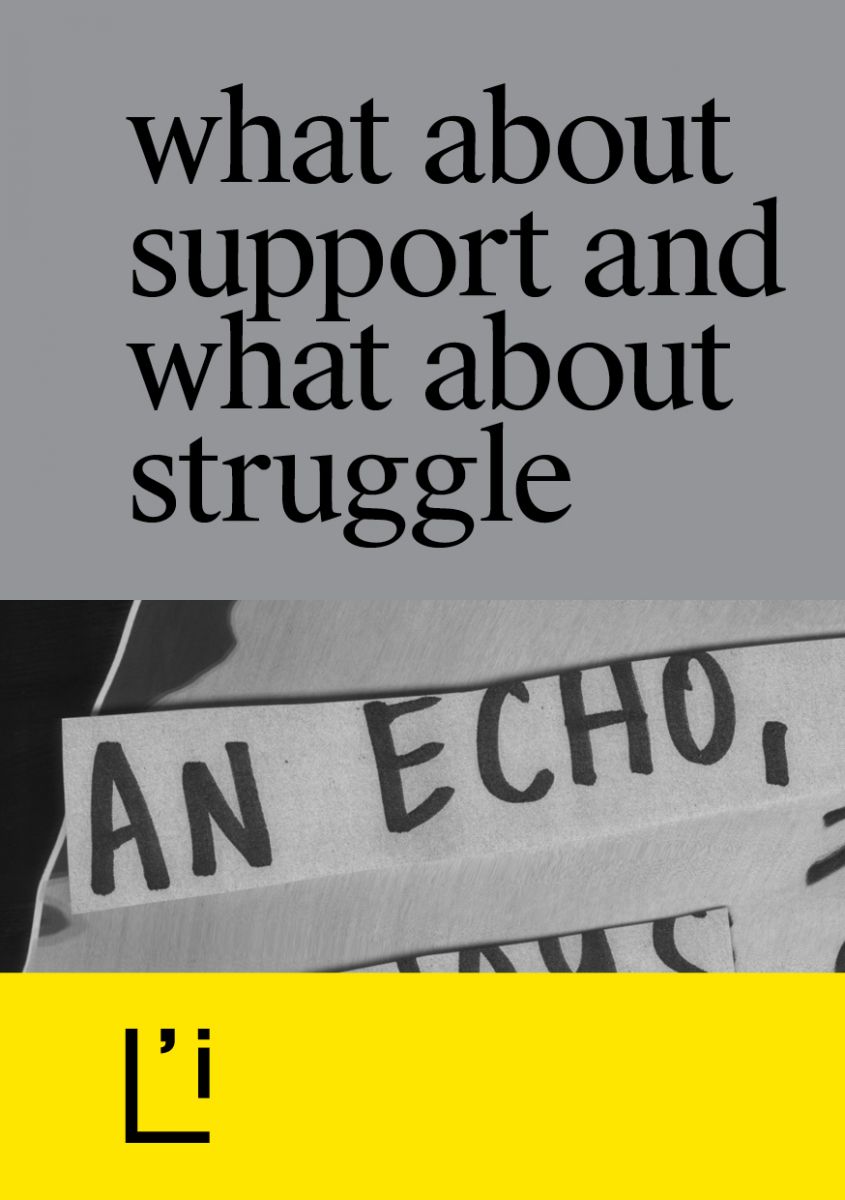What about support and what about struggle

139 pages,
2021
what about support and what about struggle is edited by L'Internationale Online and Jennifer Hayashida, as a collection of poetic responses on the most essential topic of today: how to survive un/natural catastrophes?
Starting from a collective reading of Francis Marie Lo's volume of poetry A Series of Un/Natural/ Disasters (Commune Editions, 2016), poets and artists Napo Masheane, Léuli Eshraghi, Merve Unsal, tacoderaya, Lukaza Branfman-Verissimo and Fernanda Laguna have resituated its critique of catastrophe discourse in other urgent pasts and presents through variety of poetic, visual, discursive and audio formats. What are the poetics we are left with when the un/natural entanglements of "disaster" are taken apart and reconstructed? Lo's text utilizes translation as one of many methods to examine and critique what scholars such as Orlando Patterson term "social death," that is, a condition of not being recognized – especially by nation-state apparatuses – as fully human, vis-à-vis a poetics of mutual aid represented through assemblage, transcription, data-gathering, interview, and still-life.
With this collection of speculative translation responses, we've experienced processes of meandering through language and time, re-mixing histories – fast-forwarding, resting, reversing, accelerating, and discontinuing – almost as if tangibly whirling on a turntable through temporalities, methods, and geographies, based on repetitions and recirculations as well as kinship in the practice of revolutionary solidarity.
Starting from a collective reading of Francis Marie Lo's volume of poetry A Series of Un/Natural/ Disasters (Commune Editions, 2016), poets and artists Napo Masheane, Léuli Eshraghi, Merve Unsal, tacoderaya, Lukaza Branfman-Verissimo and Fernanda Laguna have resituated its critique of catastrophe discourse in other urgent pasts and presents through variety of poetic, visual, discursive and audio formats. What are the poetics we are left with when the un/natural entanglements of "disaster" are taken apart and reconstructed? Lo's text utilizes translation as one of many methods to examine and critique what scholars such as Orlando Patterson term "social death," that is, a condition of not being recognized – especially by nation-state apparatuses – as fully human, vis-à-vis a poetics of mutual aid represented through assemblage, transcription, data-gathering, interview, and still-life.
With this collection of speculative translation responses, we've experienced processes of meandering through language and time, re-mixing histories – fast-forwarding, resting, reversing, accelerating, and discontinuing – almost as if tangibly whirling on a turntable through temporalities, methods, and geographies, based on repetitions and recirculations as well as kinship in the practice of revolutionary solidarity.

